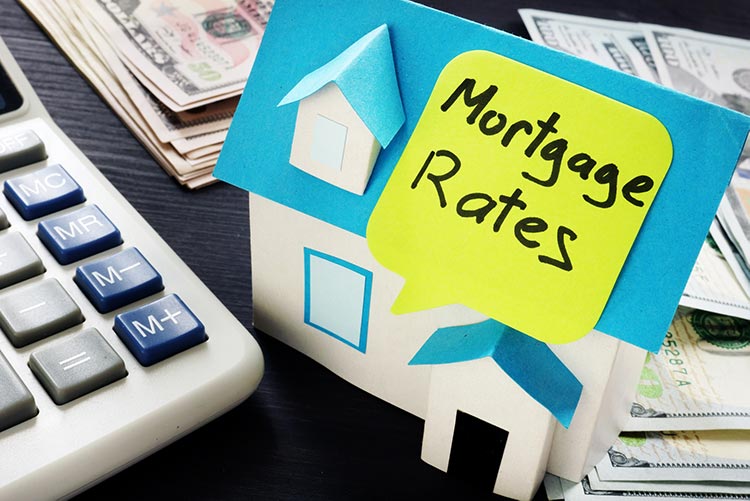
The interest rate on your mortgage can make a significant difference in the monthly payment—just look at how quickly housing market activity and prices dropped when rates started rising last year. Buyers at the beginning of 2022 enjoyed rates as low as 3 percent, but by November, the average 30-year fixed rate had spiked to over 7 percent. Rates for high-quality borrowers have eased a bit in the last few months but are still hovering over 6 percent. It’s anyone’s guess where they will head next, which means many nervous homebuyers are hoping to lock in a rate when they find the house they want to buy. Locking the rate means that the borrower is eligible for the specified interest rate even if rates go up as long as they close the loan within the lock period.
How much difference does the interest rate make?
Let's look at the difference in the monthly payment for a home purchase using different interest rates. For example, the home is priced at $500,000, and the borrower will make a ten percent downpayment of $50,000, leaving $450,000 to finance.
At 3.0 percent, a 30-year fixed-rate mortgage will cost $1,897 per month (not including taxes and insurance).
At 4.5 percent, the loan payment will be $2,280 per month.
At 6.0 percent, the payment will be $2,697 monthly.
At 7.2 percent, the payment jumps to $3,054.
Borrowers may want to lock the rate early.
When a potential borrower applies for a loan, the lender will often offer them the opportunity to "lock in" the current interest rate. This option is undoubtedly tempting if the rates are increasing. Most lenders will allow a lock 30 or 60 days before the anticipated closing date, and some may accept a lock for 90 or more days.
Some lenders will charge a fee for a more extended rate lock, especially if rates are volatile. The advantage of locking in the rate is knowing what to expect in your payment. However, if the terms of the purchase change, your lock might be void. For example, if the appraisal is more or less than expected, resulting in a shift in the purchase amount, that can upset the proceedings. The lender may not honor the locked-in rate if your purchase doesn't close on time.
What if rates drop while I’m locked in?
In this case, what happens depends mainly on the lender. Some will automatically provide the lower rate, while others may not or will charge a fee for you to benefit from the lower rate. (Note, it may make sense to pay the fee since a lower rate may save you substantially over the course of the loan). In addition, some lenders have a "float down" option. In that scenario, you will keep your locked-in rate if rates increase, but you can float down to the lower rate if they drop. Sometimes lenders will charge for this or only allow it if the rate decrease is significant. Taking advantage of a float-down can also potentially delay your closing, so keep that in mind.
Can I lock in the rate for an investment property?
Of course, jumbo loan rates are even higher in many cases, not to mention construction and investment loans. Jumbo loans are supersized mortgage loans, considered riskier because the loan amount is higher than conforming loans. Those loan amounts exceed the maximum that Fannie Mae will guarantee. Construction loans are typically employed while a house is being built, although some lenders offer “construction-to-permanent” loans. While both are designed for owner/occupiers, investment loans are for a property the owner intends to use for business purposes, often as a rental property. Investment property loans are typically priced between .5 and one percent higher than a conforming loan, but the borrower's credit influences the rate. Lenders suspect that a borrower will walk away from an investment more quickly than from the home in which they live. Rate locks may be helpful in all of these circumstances, so talk to the lender.
This material is for general information and educational purposes only. Information is based on data gathered from what we believe are reliable sources. It is not guaranteed as to accuracy, does not purport to be complete and is not intended to be used as a primary basis for investment decisions. It should also not be construed as advice meeting the particular investment needs of any investor.
Realized does not provide tax or legal advice. This material is not a substitute for seeking the advice of a qualified professional for your individual situation.
All real estate investments have the potential to lose value during the life of the investment. All financed real estate investments have the potential for foreclosure.
Hypothetical examples shown are for illustrative purposes only.



